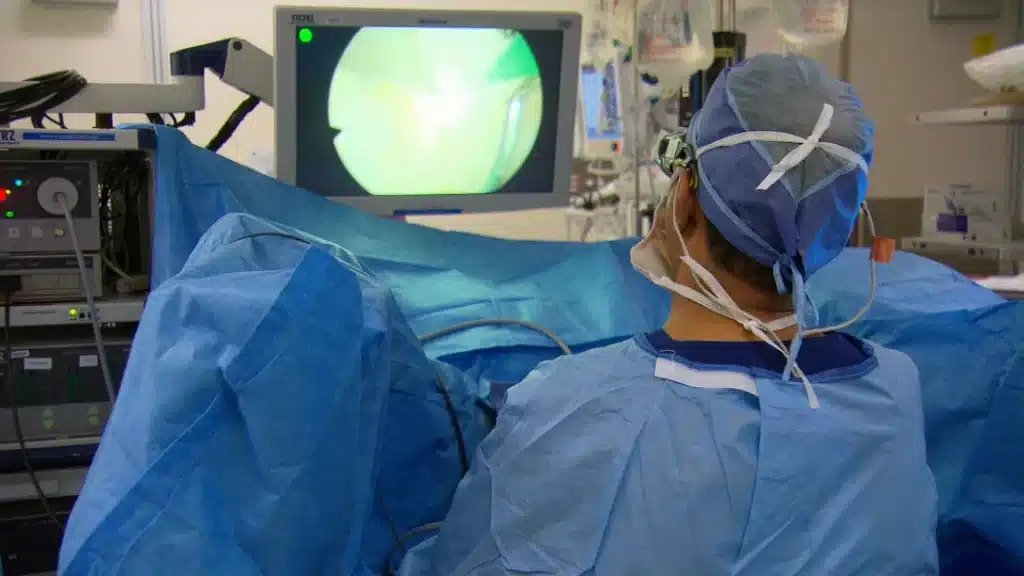
In older men, a common condition is found that can cause frequent urination or difficulty while urinating. If you are suffering from this issue, then it is crucial to find the right procedure for the treatment of an enlarged prostate with early detection. Different treatment procedures are available for the enlarged prostate that can help you recover your health and improve the quality of life.
If you are seeking the best treatment procedure and urologist for the treatment of the enlarged prostate, then you have reached the right destination. Dr. Mourad Abouelleil is a West Palm Beach-based urologist who specializes in offering the best treatment for an enlarged prostate. He can offer you the best treatment procedure by understanding your conditions, symptoms, and medical history.
Benign Prostatic Hyperplasia is a condition in which the prostate gland surrounds the urethra, is enlarged. When the enlarged prostate is pushed against the urethra, it can obstruct the flow of urine. Men over 50 have to face this type of issue that can disturb their health and quality of life. This condition is not that dangerous, but if not treated, it can cause serious health issues, such as bladder infection, urinary retention, or kidney damage. Age, genetics, and hormonal changes are the factors that can lead to Benign prostatic hyperplasia or enlarged prostate. Several symptoms can indicate an enlarged prostate, but it is important to remember, these symptoms can differ from person to person. If you notice any signs of BPH, then early detection of the issue is recommended, so that you can prevent other difficulties.
Benign Prostatic Hyperplasia, or enlarged prostate, is a condition that can be diagnosed with different procedures, including physical examination, urine tests, blood tests, and imaging tests. With these test procedures, the urologist can understand the size, shape, and thickness of the prostate. A digital rectal examination is also performed to check the health of the prostate gland. With the help of blood tests and urine tests, the urologist can assess the functionality of the kidneys. Some other tests, such as ultrasound and PSA blood tests, are also performed to estimate the complexity of the condition.
Dr. Abouelleil is an experienced and highly skilled urologist and offers innovative treatment options for the specific conditions of the patients. He ensures that each patient gets personalized and effective medical care to meet the unique needs of their conditions. Dr. Abouelleil’s Approaches to BPH Treatment are mentioned below in brief:
With the early detection of benign prostatic hyperplasia (BPH), one can experience increased effective results of the treatment options and survival rates for the condition. When the condition is diagnosed early, then less invasive treatments can be performed to preserve the functionality of the urinary system. Early detection allows to prevent the further complications associated with the enlarged prostate. One can experience the major benefits of the early diagnosis of benign prostatic hyperplasia, including:
It is challenging to find the actual costs for BPH treatment in West Palm Beach. The cost for the treatment of BPH can vary depending on some factors, including the size of the prostate, the health of the patient, and insurance coverage. Here is an estimated overview of the cost of BPH treatment:
| Treatment type | Estimated cost for the treatment |
| BPH Medical Therapy | $415 (including office visit and medication) |
| TURP (Transurethral Resection of the Prostate) | $4,793 – $6,000 |
| Open Prostatectomy | $7,511+ |
| Robotic Prostatectomy | $7,200 – $35,500 |
| Radical Prostatectomy (Laser) | $16,891 – $17,560 |
The important considerations that can lead to an increase in the cost for the treatment of BPH may include:
After the treatment procedure was performed for BPH, the post-care may include lifestyle changes, medications, activity restrictions, discomfort, and side effects. Your urologist can provide you the detailed instructions for the post-care of the BPH or enlarged prostate.
Answer. Yes, if benign prostatic hyperplasia is left untreated for a long time, then this condition can lead to damage to the functionality of the kidneys. There is no direct cause of enlarged prostate to the kidney damage, but it can lead to some complications from BPH.
Answer. Dr. Mourad Abouelleil is an experienced urologist based in West Palm Beach who specializes in offering the best treatment for BPH. He offers different treatment procedures, including surgical, non-surgical, and lifestyle changes, to treat the enlarged prostate. He and his team can offer you effective results after the procedure and personalized medical care.
Answer. Benign Prostatic hyperplasia is a non-cancerous condition that can lead to death, but if left untreated, it can lead to several complications. Common issues caused due to benign prostatic hyperplasia can include kidney damage, serious urinary tract infections, bladder damage, and acute urinary retention.
Answer. Yes, benign prostatic hyperplasia can lead to kidney failure in situations where the condition is serious or left untreated for a long period. An enlarged prostate can resist the flow of urine, which can affect the functionality of the kidneys and lead to kidney failure.
Answer. Some common side effects after the treatment of an enlarged prostate may include urinary tract infection, erectile dysfunction, temporary urine leakage, and the flow of semen in the backward direction during ejaculation.

Dr. Mourad Abouelleil is a highly skilled and certified urologist known for his dedication to excellence in advanced urological procedures, such as robotic prostatectomy, HIFU, etc. With cutting-edge technology and extensive experience, Dr. Mourad Abouelleil provides personalized treatment plans to meet the unique needs of every patient with quality medical care.
Error: Contact form not found.